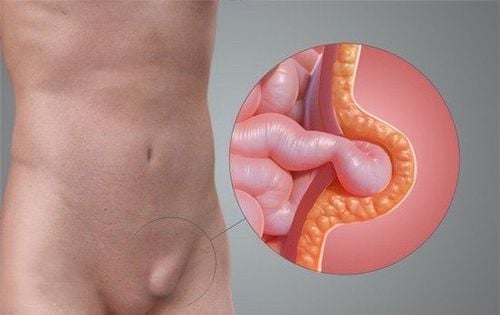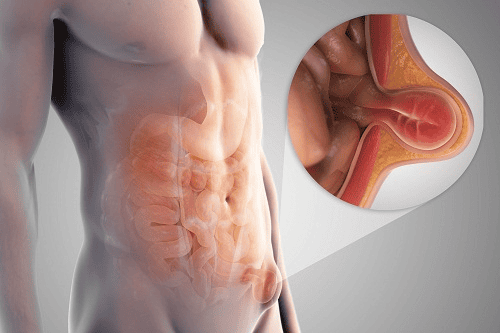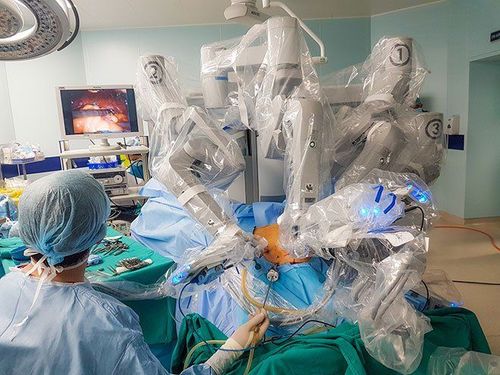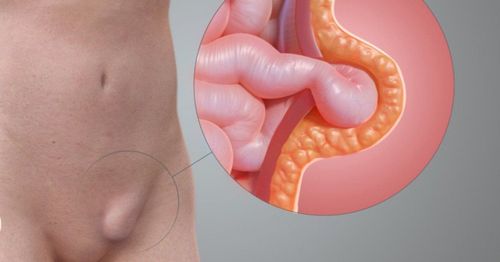This is an automatically translated article.
The article is professionally consulted by Master, Doctor Vu Huy Binh - Department of Medical Examination & Internal Medicine - Vinmec Hai Phong International General Hospital.Strangulated hernia is the most common and serious complication of abdominal wall hernias, in which mainly inguinal and femoral hernias. A strangulated hernia is a life-threatening medical condition. Therefore, early detection and treatment are very important.
1. What is a strangulated hernia?
A strangulated hernia is a condition in which the organ in the hernia sac is compressed, constricted at the neck of the bag, leading to dysfunction, circulatory disorder and ultimately organizational disorder. This is the most dangerous complication of all types of abdominal wall hernias, in which mainly inguinal and femoral hernias.2. What is an inguinal hernia?
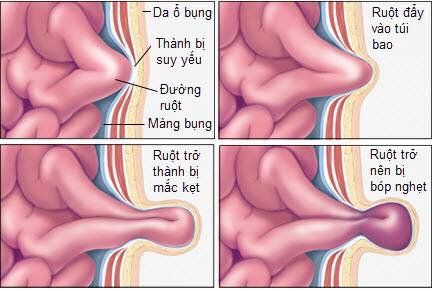
The inguinal canal is located on either side of the lower abdomen and is connected to the genitals. When a part of the abdominal organs such as the intestines, the great omentum passes through this hole, it is called an inguinal hernia. In men, it is most common near the pelvic area on one or both sides.
Inguinal hernia can be direct or indirect.
Direct inguinal hernias form slowly over time due to weak abdominal wall. Usually occurs only in adult males. This can happen due to aging or overstretching of the abdominal muscles. An indirect inguinal hernia is present from birth due to an abnormal problem with the abdominal wall. Indirect inguinal hernias are more common in men but can also occur in women. Inguinal hernia in adults is usually not dangerous, but if detected and treated late, it can cause dangerous complications, of which the most dangerous and common is strangulated hernia causing necrosis of the intestine and mesentery.
3. What is a femoral hernia?
A femoral hernia is a condition in which the internal organs of the abdomen pass through a weak spot at the base of the triangle of Scarpa, down the anterior surface of the thigh.Femoral hernia is a type of acquired hernia, mainly seen in women, especially those with multiple pregnancies. It is thought that the muscles of the abdominal wall are weak due to repeated pregnancies, and the pelvis is slightly stretched during childbirth. Those are the two main factors that make the fascia and ligaments of the Scarpa triangle weak, easily causing hernia.
Femoral hernia has a very high rate of strangulated hernia (53 - 65%).
Depending on the degree of hernia, people are divided into 2 types:
Incomplete hernia: visceral descends into the triangle of Scarpa, in front of the thigh but below the ethmoid fascia. Complete hernia: the organ has passed through the foramen ovale and lies in front of the ethmoid.
4. Symptoms of strangulated hernia

Acute pain that comes on suddenly and may become more severe Bloody stools Constipation The skin in the area of the hernia is darker or red Fatigue Fever Fever Inflammation or pain around the hernia Increased heart rate Nausea Vomiting
5. When to see a doctor?
A strangulated hernia is a medical emergency. Therefore, the patient must be examined by a doctor immediately so that surgery can be performed. Doctors may order an ultrasound or X-ray to determine the size of the hernia and if there is a bowel obstruction.6. How to treat strangulated hernia?
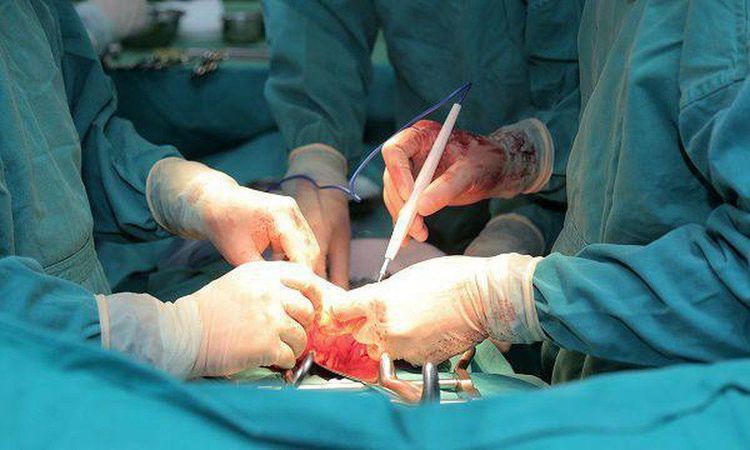
The surgery is carried out in two steps.
The surgeon will start by reducing the strangulated hernia. This is done by gently applying pressure to the hernia to help release trapped tissue back into the abdominal cavity. The doctor will then remove the damaged tissue if necessary. Depending on the treatment, you will need local anesthesia or anesthesia during surgery. After surgery, you may need to stay in the hospital for a few days. You should be able to return to your regular routine within a week or two. But be careful to avoid strenuous physical activities, such as heavy lifting.
If the strangulated hernia is not treated, the folds of tissue or the small intestine will become strangled, with no blood supply, leading to the risk of necrosis within hours. When tissue becomes necrotic, it releases dangerous toxins into the bloodstream. That can lead to sepsis and ultimately death.
In summary, with appropriate treatment, people who have had a strangulated hernia have a good prognosis. The most important thing is to get treatment as soon as possible. You can also prevent a strangulated hernia by being proactive. That can reduce the risk of a strangulated hernia.
In the past, surgery for inguinal hernia was usually open (brake surgery). However, at Vinmec International General Hospital, it pioneered the application of endoscopic inguinal hernia treatment technique. The biggest advantage of laparoscopic surgery is that the surgeon can easily see the vas deferens and blood vessels supplying the testicles, and at the same time can suture the peritoneal tube (the cause of inguinal hernia in children) without touching the vas deferens or the blood vessels supplying the testicles. Therefore, laparoscopic surgery avoids two dangerous complications, namely vasectomy or testicular atrophy, complications that can be encountered during open surgery.
In addition, laparoscopy also allows assessment of the contralateral peritoneal tube and suture immediately if it is still open. Therefore, it is possible to prevent inguinal hernia on the opposite side.
Master. Doctor Vu Huy Binh has 09 years of experience in the field of Gastrointestinal Endoscopy. Currently working as a Gastroenterologist at the Department of Medical Examination & Internal Medicine - Vinmec Hai Phong International General Hospital.
Please dial HOTLINE for more information or register for an appointment HERE. Download MyVinmec app to make appointments faster and to manage your bookings easily.





